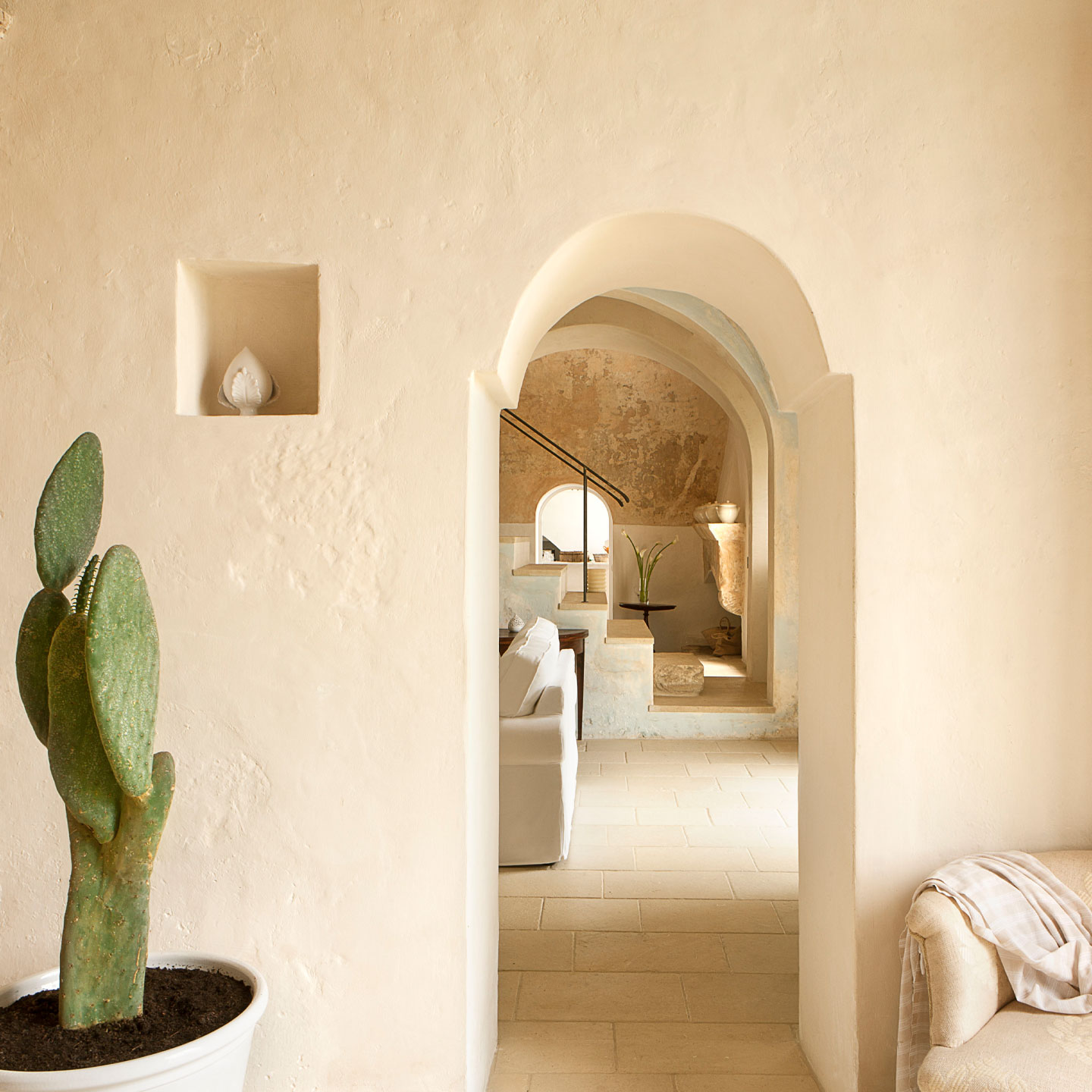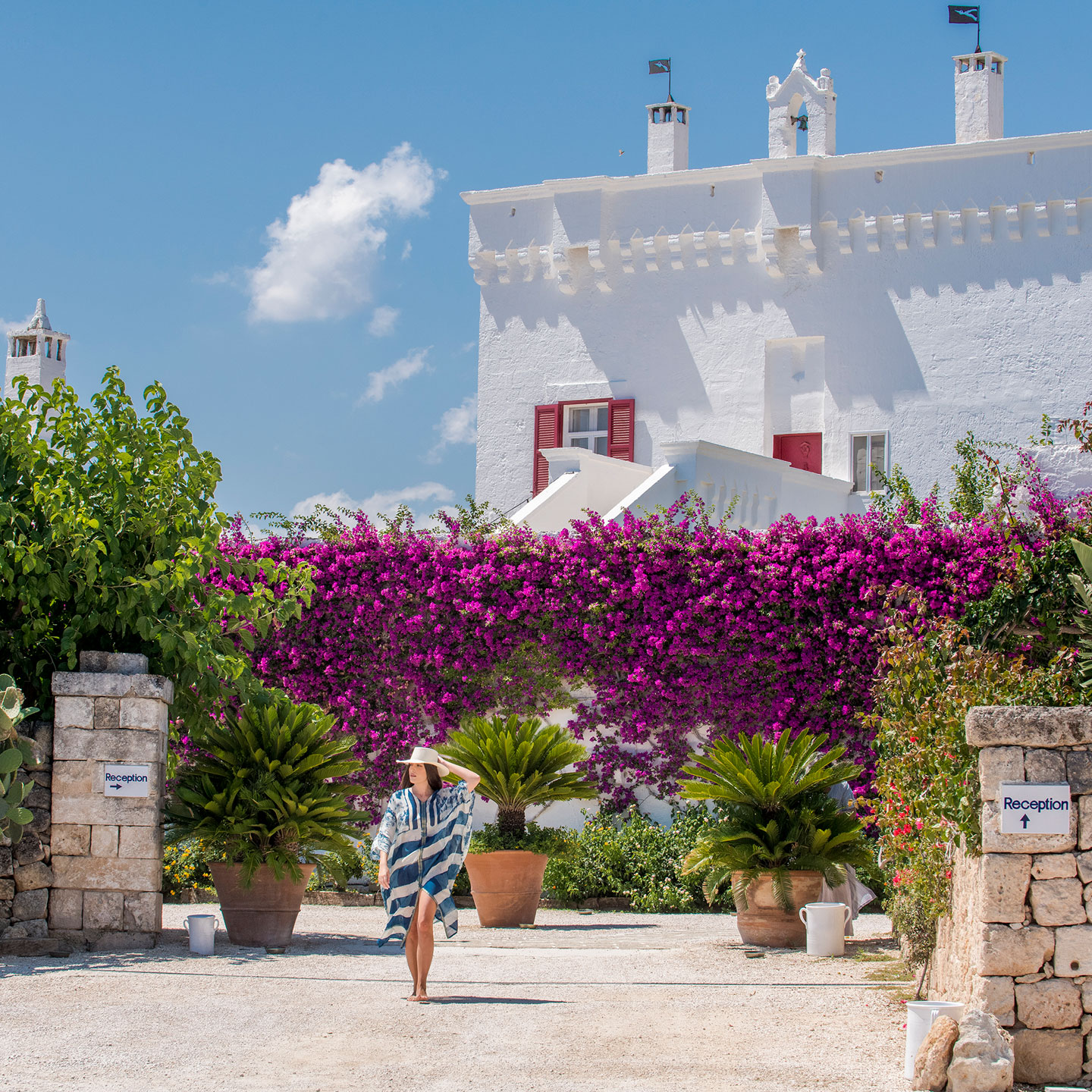Agricultural tourism is a major travel trend in Italy. Aiding in the appeal is the masseria, a type of farmhouse hotel found mostly in the country’s southern region of Puglia. The seven here earned a MICHELIN Key in recognition of their outstanding quality.
Italy has a proud agricultural tradition, and when farmers were struggling to make a living off the land in the second half of the 20th century, they began converting their properties into small hotels and resorts. The Italian agriturismo was born. Guests at an agriturismo typically get to enjoy meals made from food produced on site, and many agriturismi offer cooking classes and opportunities to interact directly with the farm, from picking vegetables to milking cows.
One specific type of agriturismo is the masseria, most commonly found in Italy’s Puglia region. The masseria itself is the fortified farmhouse at the center of an agricultural estate historically owned by wealthy land barons in the 16th through 18th centuries. These main houses were where food and valuables were stored and protected from foreign raiders (yes, pirates included).

Today, masserie are hands-on hotel experiences that are popping up throughout southern Italy. Puglia is famous for its abundant supply. And a trip there really isn’t complete without a stay at one.
Most masserie retain the rustic charms of their centuries-old roots. That’s a key part of the allure. At some you’ll even see trulli, Puglia’s distinctive conical stone huts that date back to the fourteenth century. Nevertheless, as you’ll see at the Key hotels below, there’s no lack of contemporary comforts and the light luxury touches the modern traveler has come to expect. A deeply satisfying combination of old and new.

Critabianca
Cutrofiano
Set in Grecìa Salentina, an enclave of Greek descent in the tip of the heel of Puglia, Critabianca was established as a farmhouse in the 14th century, and then transformed into an aristocratic residence by a French nobleman during a period of 18th-century Bourbon rule. Today it’s a classic country-house hotel, and a perfect introduction to the charms of southern Italian life, convenient to the beaches and to towns like Gallipoli, Otranto, and Lecce.
Book Critabianca with The MICHELIN Guide →

Ottolire Resort
Locorotondo
This 14-room luxury boutique hotel is just under an hour from Bari. Beginning its life as a classic farmhouse estate, in the 1970s its ruins were purchased and rebuilt — including its trulli, the distinctive, conical buildings typical of the region. Despite the rural setting, the atmosphere is one of contemporary luxury, with interiors as sophisticated as any.

Baglioni Masseria Muzza
Otranto
It’s set just outside the charming coastal town of Otranto, far down the heel of Italy’s boot, and its 40 rooms and suites are comfortable, expansive, and extraordinarily soothing in their palette of whites, creams, and grays. It’s got a spa whose scale is perhaps surprisingly large, and not only is the beach close by, but the Almini Lakes nature reserve is as well. Return in time to dine on Salentine classics at one of the property's two restaurants.

Masseria Calderisi
Savelletri di FasanoWith 24 rooms it’s substantial for a farmhouse, but on a 24-acre estate — that’s a substantial ratio — it’ll never feel crowded. And it means there’s plenty of variety, from the stylish rooms in the main building to the suites that occupy the old tower or the stables.
Book Masseria Calderisi with the MICHELIN Guide →

Masseria Torre Coccaro
Savelletri di Fasano
The setting at Masseria Torre Coccaro is classic Puglia: a sun-bleached hillside facing the Adriatic Sea amid groves of olive trees. The view is no accident — the Masseria began its life in the 16th century as a watchtower, a fortified farmhouse, designed as a stronghold against marauding Turks. Today the fortifications are strictly ornamental, and the Masseria’s architecture just adds to the charm.
Book Masseria Torre Coccaro with The MICHELIN Guide →

Masseria Torre Maizza
Savelletri di Fasano
This is a region that historically was down-at-heel in more ways than simply the geographic one, and even as the hotels started sprouting, they were more likely to be rustic farmhouses than high-gloss boutiques. The Masseria Torre Maizza, then, is a bit of a change of pace: while the main whitewashed farmhouse is a perfect example of the traditional local style, the interiors edge toward the luxurious.














